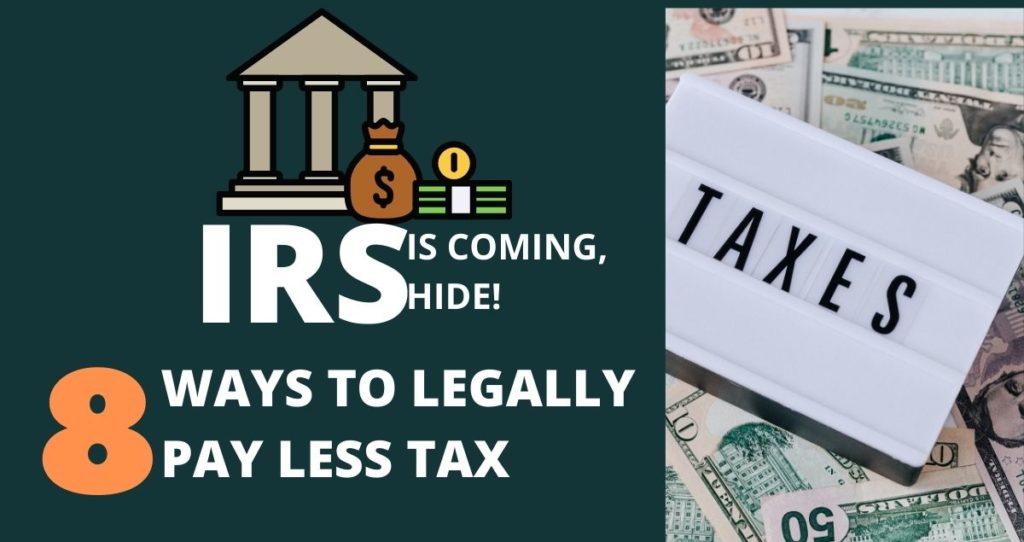When it comes to budgeting, things can go wrong without knowing it. There are two main important steps when it comes to budgeting. The first step is to create a budget and the second is to respect your budget. When one of these steps goes wrong, your budgeting strategy does not work. This is why you should avoid budgeting mistakes most people make.
In this article, you are going to learn the top 8 budgeting mistakes that people make and how to avoid them. Without further ado, let’s get started.
1. Creating a very strict budget
The main reason you need a budget is to help you manage your expenses, save for a particular goal, or simply avoid making mistakes. For example, if you are making $5,000, it would be unwise to spend half of it on just rent.
Some people might argue that it is ok to spend half of your income on rent. However, it is never a good idea given the fact that this amount comes from your after-tax money. In this case, a budget can help you open your eyes and realize that your rent alone is taking more than half of your gross income.
Now that you know some of the reasons you need a budget, let’s see the first of many budgeting mistakes many people make.
The first mistake is to create a very strict budget. Just because you want to save for a wedding, it does not mean you need to starve yourself. A strict budget is one that takes away your basic needs and life necessities.
Instead of achieving what you created the budget for, it plunges you deeper into more serious problems. This kind of budget does not bring you happiness. For example, you could decide to eat once a day because you want to save more money.
For sure, you will be saving more money by skipping one meal every day.
What is wrong with this budgeting practice?
If you thought about malnutrition which results in a weak body and mediocre performance, you are right. In addition, you get more health problems when you are not properly fed.
What you think you are saving will not be enough to rebuild your health back to optimal performance. It is also possible to have long-lasting medical conditions that will leave you in a coma or unable to be yourself afterward.
TIP: If you want to take it to the extreme, get rid of your wants and minimize what you spend on needs. For example, you can decide to end all your streaming subscriptions and other entertainment expenses and stick to free services. In addition, you can buy cheap foods, DIY what you can, and buy used everything. This way, you will minimize most of your expenses without starving yourself.
2. Budgeting Mistakes: Creating a budget using gross income

Before you start making a budget, you must know the right income to use. Just because you make $80,000 per year, it does not mean that it is all yours. Remember? The government must have its share through income tax. There are also other deductions that get taken out of your gross income.
What is a gross income?
A gross income is the total sum of all the money you make before tax and other deductions. Your gross income will include the sum of all salaries, wages, interest payments, rents, and other earnings you make.
When you create a budget using a gross income, you include the money that is not yours. This will make you think that you make more money whereas you don’t. You could bump up your expenses and engage in expensive businesses based on false calculations.
Once your taxes and other deductions are taken out of your gross income, what is left may not cover all your expenses.
The solution to this problem: Always use your net income.
What is net income
Your net income is the total amount left after tax and other deductions. This amount is the one you take home, and therefore, yours to keep and use.
When making a budget, it is very important to use this income rather than your gross income. Net income gives you accurate calculations in your budgeting practices. For those with combined incomes such as couples, they can use their combined net incomes.
3. Budgeting Mistakes: Not being serious about your budget
There are two important steps involved with budgeting.
(1) Creating a budget: This step is about creating your budget from start to finish regardless of what your budget is about.
(2) Respecting your budget: This is the hardest part. Respecting your budget means that you must follow exactly what is written in your budget.
Most people never create their budget. Those who do make one of the most common budgeting mistakes.
The mistake is: Create a budget and never look at it again. That is you put all your numbers down but you never follow any of the things you wrote down. You decide to spend only $100 on food per week and end up spending $150.
If you keep going over your budget, it means that you are not serious about your budget. Your budget could also be strict which makes it difficult to follow as noted in the first budgeting mistake.
In order to succeed at budgeting, you must understand the true meaning of numbers you put down and why they are important in your life. It is also important to keep your mind on the benefits of creating a budget instead of how difficult it is to budget.
Yes, budgeting is hard and that is what makes it a great tool when it comes to financial planning. If it was easy everyone could have done it. So, keep your mind on the prize and keep budgeting.
4. Having an unrealistic budget

A good budget is one that helps you achieve your purpose without negatively affecting your standard of living. For example, you can create a budget to help you save $5,000 in six months for a car. If this budget helps you save this amount in that timeframe without compromising your livelihood, then it would be safe to say that it is a good budget.
Some people choose to create a budget that is impractical. In other words, they create budgets that are nearly impossible to follow or unrealistic. If something does not make sense on a paper, it will be 10x harder in practice. Do not be like those people who overestimate what they can achieve in 1 year and underestimate what they can achieve in 10 years.
5. Not budgeting every expense
In order to make good financial decisions, you must budget every expense.
This is the only way you can know exactly how much you can be able to save, spend, or invest.
A mistake many people make is to not budget every expense. They think that some expenses are too small to be ignored. The truth is that no expense is too small to be ignored on a budget.
Have you bought something such as a drink from a vending machine? I know it is only $1.50 per drink. Some of them go for more. Is $1.50 big enough to be on a budget? The answer is yes. If you get one drink, you will only pay $1.50. What if you are able to repeat this once a day for a month? In this case, you would spend $45 for that month.
Now you see how small expenses can add up? If I told you that your vending machine drinks will cost you $45 every month, you would probably create a budget for it.
This amount is big enough to mess up your budget. In order to avoid this issue, make sure you budget every expense.
Even corporations worry about every dollar they spend or lose. What do you think would happen if you owe a corporation $1.00? You cannot get away with it. The company will hunt you down until you pay it off.
So, you should do the same thing. Treat every dollar like the biggest money you ever handled and budget every piece of it. Without budgeting every expense, you could put your budget out of balance and find it difficult to follow it. That is those expenses you ignore can make you spend the money you saved for something else.
6. Budgeting Mistakes: Making a complicated budget

Your budget should include everything. But at the same time, it should be easy to understand and follow. If you make a budget that is hard to understand, it will be harder to follow.
This is one of the biggest budgeting mistakes people make. They put down complicated calculations and numbers that are hard to understand. Later, they go back to their budget and start wondering how they came up with those numbers. As a result, they start ignoring the budget and abandoning it.
TIP: If your budget is not simple and easy to understand, you will not be able to use it. So, keep it simple and meaningful.
7. Forgetting to update your budget
Do you remember the last time you updated your budget? If you have not made any updates for a very long time, do not freak out. You are not the only one. Many people make budgets and keep using them for a very long time without making updates to them.
Why do you need to update your budget?
There are many reasons you should always update your budget. For example, if your income decreased due to economic conditions or a layoff, you will immediately make updates on your budget to reflect your new living conditions. You should not keep your entertainment and other leisure expenses without an income to support them.
Without changing your budget, you will end up burning all your savings really fast.
As your living and earning conditions change, you must make adjustments to your budget to reflect these changes. In addition, some of your expenses may no longer exist 10 months from the day you created the budget.
Do not be like some people who use the same budget for 10 years and end up losing money on unnecessary expenses.
8. Budgeting Mistakes: Not budgeting at all
Not creating a budget is probably the biggest budgeting mistakes people make. According to The Penny hoarder, more than half of USA people do not keep a budget or know how much they spend. Without a budget, is difficult to know exactly how much you are making and how you are spending it.
This makes it difficult for you to make meaningful financial decisions that will help you achieve financial freedom. Living without a budget is like running a marathon without knowing where you are going and without keeping track of how many miles are left. You can’t know where to go or when you have arrived without a clear map to follow.
This is why you need a budget. A budget is probably the most important tool you will need in your financial planning. Whether you are in your 20s or retired already. You must have a budget to help you understand what you are dealing with.
Many people do not have a budget and this is the biggest budgeting mistake they make. They live blindly and struggle their entire lives without knowing why they can’t get ahead. So, create your budget today.






